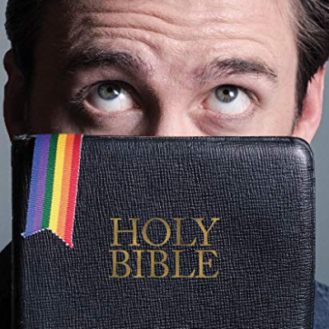By: Addison Wylie
I remember starring in a high school play, a play that shall remain nameless, where I didn’t know what was going on. Not in a way that I was passed out and my body was strung up resembling a Weekend at Bernie’s scenario; I legitimately did not know what the play was about, my character’s motivation, or what it all meant in the grand scheme of things.
Being that the play was rather difficult to comprehend and our opening day was fast approaching, I stayed quiet and experimented with how long I could go with this theatrical poker face. Maybe not the best idea looking back at it, but given the nature of the play, I can see why I decided this.
The story concludes with the play’s run ending and me receiving lots of pats on the back and a lot of special recognition. Some said it was one of the best performances they’d ever seen out of me. I didn’t know whether this was good or bad.
I reminisce not for my own purposes but, I was reminded of this while watching Guy Maddin’s Keyhole, a mysterious and intangible attempt to mix a crime film in with a supernatural ghost story.
Maddin is a director whom actors must enlist all of their trust into. His story may not be easy to grasp at first and his imagery may seem outrageous but, if you’re playing a role in Maddin’s work, you have to trust the backroads he is taking because he is almost always certain where he wants his film to end up.
I’ve seen Maddin’s The Saddest Music in the World and My Winnipeg, both are dreamy films I enjoy immensely though they may not be the easiest recommendations. I’ve seen Maddin take a group of actors and direct them phenomenally and those players have been able to be as passionate as Maddin is about his material.
With Keyhole, there’s a minor slip leading to a disconnection. I want to believe it’s in the acting.
Some of the actors “get” the story and understand their character. It also helps that these particular people have been in the acting game for quite some time and understand how to approach this script written by Maddin and George Toles.
The two actors who are the strongest are Jason Patric (as the deadbeat father Ulysses Pick) and Udo Kier (as the morose Dr. Lemke). Both comprehend the inner workings to their characters and are able to deliver each line with gusto and heart. Patric has more lines that tightrope walk between sounding legit and being too snappy but it’s his terrific acting that sells us on these short monologues.
Some actors aren’t like Patric and Kier and put on that aforementioned poker face; hinting that their performances are running on pure confidence.
David Wontner (who plays Manners, a young abductee) and a number of Ulysses’ henchmen reminded me of myself in that unnamed play. Their performances are very personality heavy and show that each actor is very passionate about giving his/her best. However, in the final scenes where everything is wrapping up, those seams in the acting start to show.
Then, there are those who are clueless; and, I’m looking at you Kevin McDonald (Kids in the Hall).
Judging by his portrayal of Ogilbe, I’m convinced McDonald has no idea what the meaning behind it all is. He’s unsure if his slightly paranoid character is supposed to be played straight or be handled in a more kookie manner. The result is a severely mixed bag and it feels like McDonald is treating this as just another sketch he would star in with other Kids in the Hall players.
The audience spends so much time focusing on whether the actors understand the film or not that we end up forgetting we’re watching a movie.
To give the actors a break though, this disconnect could also be pointed to how outlandish the material is in the first place. Toles and Maddin’s script teases movie goers for a long time which is appreciative but their material mustn’t tease their actors who will be retelling the story. The actors must be kept in the loop..
The disconnection finger can be pointed at any of these cinematic attributes. Maddin himself could even take some more blame being the director. Maybe the clash of a crime story and a ghostly tale was too much of an endeavour to have it make sense to a point where even he is having trouble understanding his own material.
To give the film its rightful merits though, the film’s black-and-white “old thyme” visuals work favourably (thanks to cinematographer Benjamin Kasulke) and John Gurdebeke’s editing is impressive as well; both elements incorporating flashes of chaos during those scenes of heightened lunacy.
Their work is so memorable that it may be proof that those two men (along with Patric and Kier) may be the only ones who genuinely know what’s going on in Keyhole.



Be the first to comment